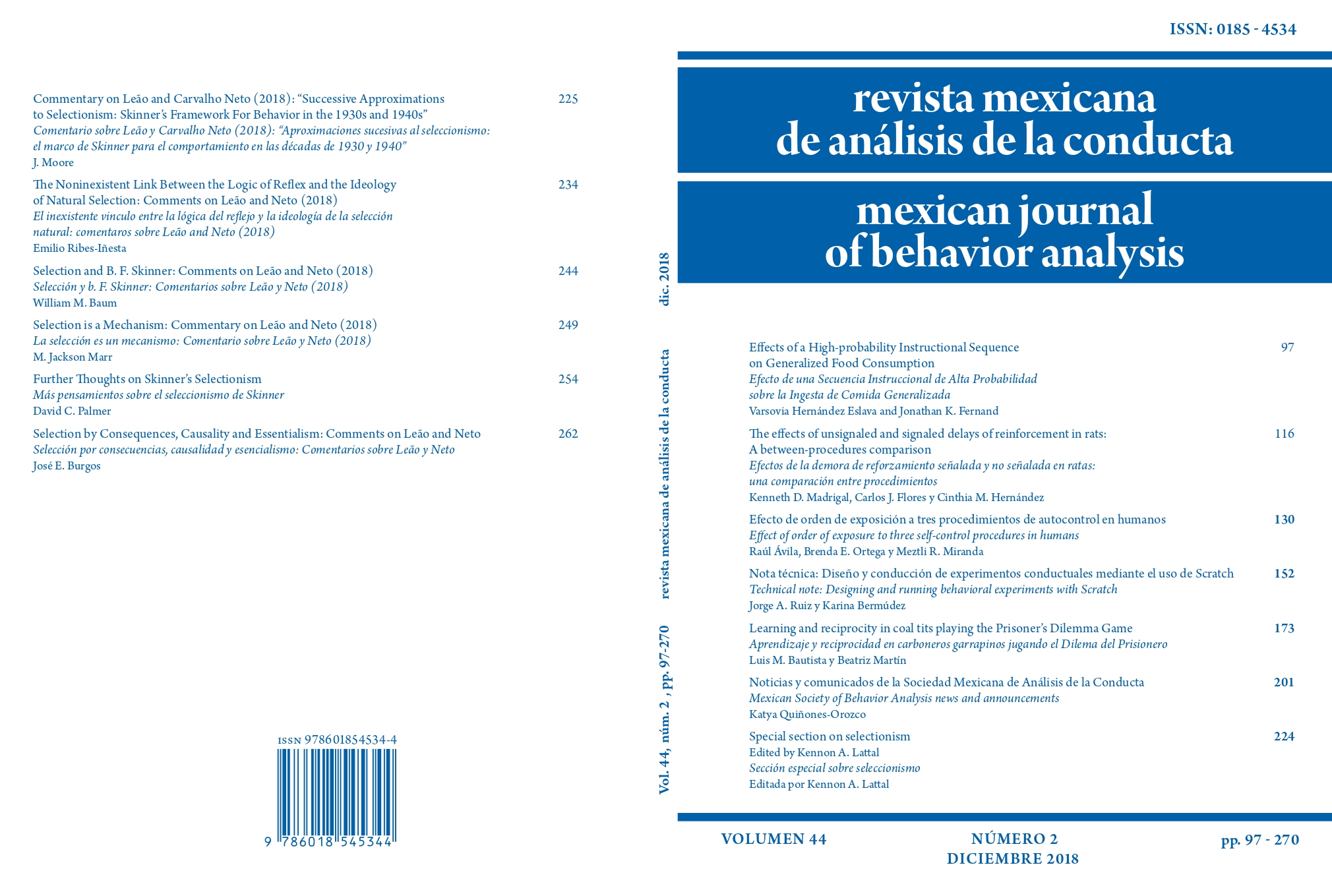Learning and reciprocity in coal tits playing the Prisoner’s Dilemma Game
Main Article Content
Abstract
Foraging tests of the Iterated Prisoner’s Dilemma (IPD) show animals defect, contrary to evolutionary models that predict cooperative animals will prevail and spread in populations. This contradiction could be due to IPD rules that could be too challenging to understand for most animals. We explored this hypothesis relaxing the payoff matrix of the IPD (T>R>P>S=0) to a weak payoff-matrix (T=R>P=S>0) and tested it with coal tits, which did not play one another; rather, each one played against a computer programmed to deliver food pellets according to the ‘Tit for Tat’ strategy. Despite the IPD was programmed with a weak payoff matrix, coal tits preferences to defect increased a 10% when playing the Game condition as compared to a previous Control condition. In the Control condition they foraged at random (48±11%) between two pellet dispensers that delivered food rewards at the same rate, while in the Game condition they increased the preference towards the defection option (58±10%). A sequential (trial by trial) analysis showed that these small birds defected regularly and cooperated at random.
